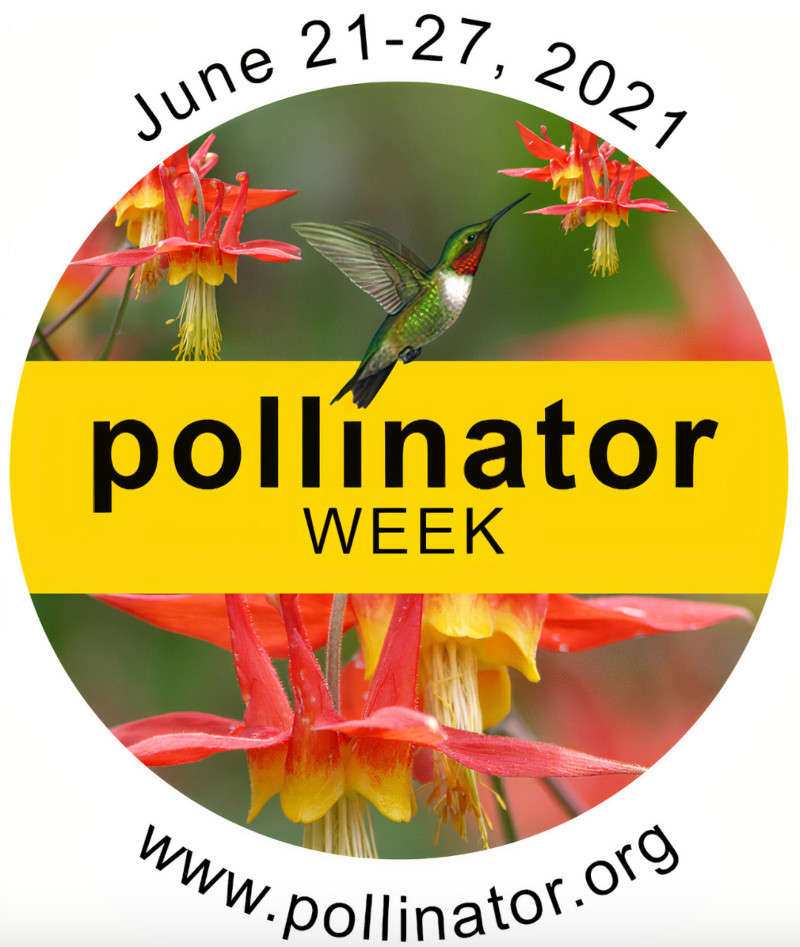If you eat every day, you need pollinators – the bees, flies, butterflies, moths, wasps, beetles, hummingbirds, and small mammals that transfer pollen from one plant to another, allowing plants to reproduce and to grow the fruit and vegetables we eat – and the flowers that grace our yards and tables. Pollinators are also very important for pollinating countless tree species – the flowers are often too high in the sky for us to see, but pollinators are there playing cupid for them as well! We have thousands of pollinator species to thank (more than 800 bee species alone in Canada) for doing the work for us.
Pollinators are in trouble world-wide, and Transition Meaford’s volunteers want their neighbours, friends, and fellow citizens to work with them to do something local about shrinking pollinator populations during Canada’s National Pollinator Week from June 21 to 27.
First, Meafordites and guests are invited to visit and enjoy the five public pollinator gardens – five healthy lunch counters for pollinators – created by volunteers from Transition Meaford for display during Pollinator Week. Each garden contains plants that attract and nourish pollinators. Each garden will flourish in locations across Meaford, some in a used canoe, decorated, refurbished, and reborn as a garden planter. “The canoes are practical and fun places for these gardens,” said Transition Meaford volunteer and David Suzuki Foundation Butterfly Ranger Elizabeth Brims, “but they’re also a symbol of the journey we all need to make to preserve the beauty, practicality, and necessity of our environment.”
Meaford’s pollinator gardeners want to help others to create gardens for pollinators too. At various locations in town, seed mix packages, instructions and educational material will be available (donations welcome) for people who wish to create pollinator garden plots.
“The bad news is that pesticides, diseases, and loss of habitat are killing pollinators everywhere,” said Transition Meaford volunteer Simona Freibergova. “The good news is we can do something about it, starting here, starting now, starting with all of us.”
Sites of the pollinator gardens:
- Bayfield Street in front of the fountain
- A canoe at Grey Heron Nursery
- Meaford Community Gardens
- Meaford Museum
- The entrance to the Georgian Trail
- Station Hill
Seed mix kits and instructions can be found by donation:
- Grey Heron Nursery
- McGintys Café, Meaford
- Fiddlehead Nursery, Kimberley
- Sideroad Farm
- Meaford Library
- Beaver Valley Honey House
These are the community partners who made our Pollinators’ Project possible:
- Meaford Rotary Club, which donated funds to purchase seedlings
- The Municipality of Meaford for allowing us to place pollinators’ gardens on town property
- Lacewing Nursery, which provided native pollinators plants
- Various gardeners who donated pollinators’ loving plants and a volunteer who handcrafted the wooden B&B boxes
- David Suzuki Foundation Butterfly Way project
- Grey Heron Nursery for being the first brave business to put up the first pollinator canoe
- The people of Meaford, who care about Meaford and its suburbs – the rest of the world
For further information please contact transitionmeaford@gmail.com
Written by John Butler, Transition Meaford












